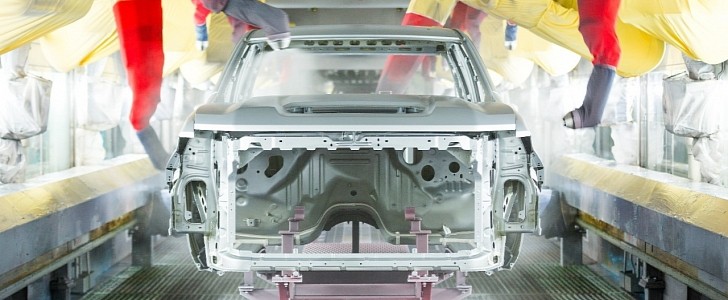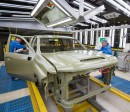Here we go again: after the end of the chip shortage was “pushed back” so many times, we’re now dealing with another horror forecast, this time coming from a company that’s very likely to be accurate on the whole thing.
Intel, which is one of the key players in the semiconductor business and one of the companies that are investing big in production capacity in the United States, claims the chip crunch is unlikely to come to an end in 2023, as it initially forecasted.
CEO Pat Gelsinger has recently been quoted as saying that the very constrained chip inventory will most likely last until 2024.
The reason is as simple as it could be: the lack of manufacturing equipment that would help chipmakers build more chips.
In other words, chipmakers out there do want to boost the capacity, only that their hands are tied right now. The manufacturing equipment that’s critical for such a strategy is facing a very limited shortage as well, so boosting the production isn’t something that can happen overnight.
Needless to say, the companies that are building this manufacturing equipment are also facing other component and material shortages.
For example, the lasers used in the production of chips require neon, a gas that was until recently supplied from Ukraine. Due to the Russian military invasion, two of the largest producers, Ingas and Cryon, stopped the production.
While other companies can still provide the necessary amount of neon, similar challenges are very likely to show up occasionally, especially given the lockdowns in China and the geopolitical tensions in Europe.
Carmakers, on the other hand, expect the chip shortage to ease off in the second half of the year. However, not everybody is optimistic the struggle would come to an end too soon, as both Volkswagen and BMW believe the constrained inventory would continue to be a problem in 2023 as well.
CEO Pat Gelsinger has recently been quoted as saying that the very constrained chip inventory will most likely last until 2024.
The reason is as simple as it could be: the lack of manufacturing equipment that would help chipmakers build more chips.
In other words, chipmakers out there do want to boost the capacity, only that their hands are tied right now. The manufacturing equipment that’s critical for such a strategy is facing a very limited shortage as well, so boosting the production isn’t something that can happen overnight.
Needless to say, the companies that are building this manufacturing equipment are also facing other component and material shortages.
For example, the lasers used in the production of chips require neon, a gas that was until recently supplied from Ukraine. Due to the Russian military invasion, two of the largest producers, Ingas and Cryon, stopped the production.
While other companies can still provide the necessary amount of neon, similar challenges are very likely to show up occasionally, especially given the lockdowns in China and the geopolitical tensions in Europe.
Carmakers, on the other hand, expect the chip shortage to ease off in the second half of the year. However, not everybody is optimistic the struggle would come to an end too soon, as both Volkswagen and BMW believe the constrained inventory would continue to be a problem in 2023 as well.






